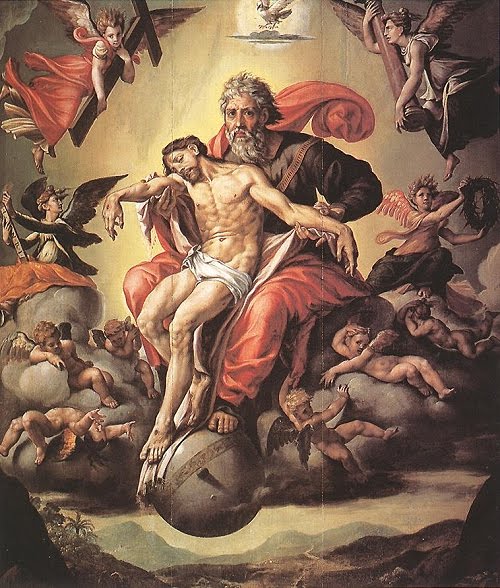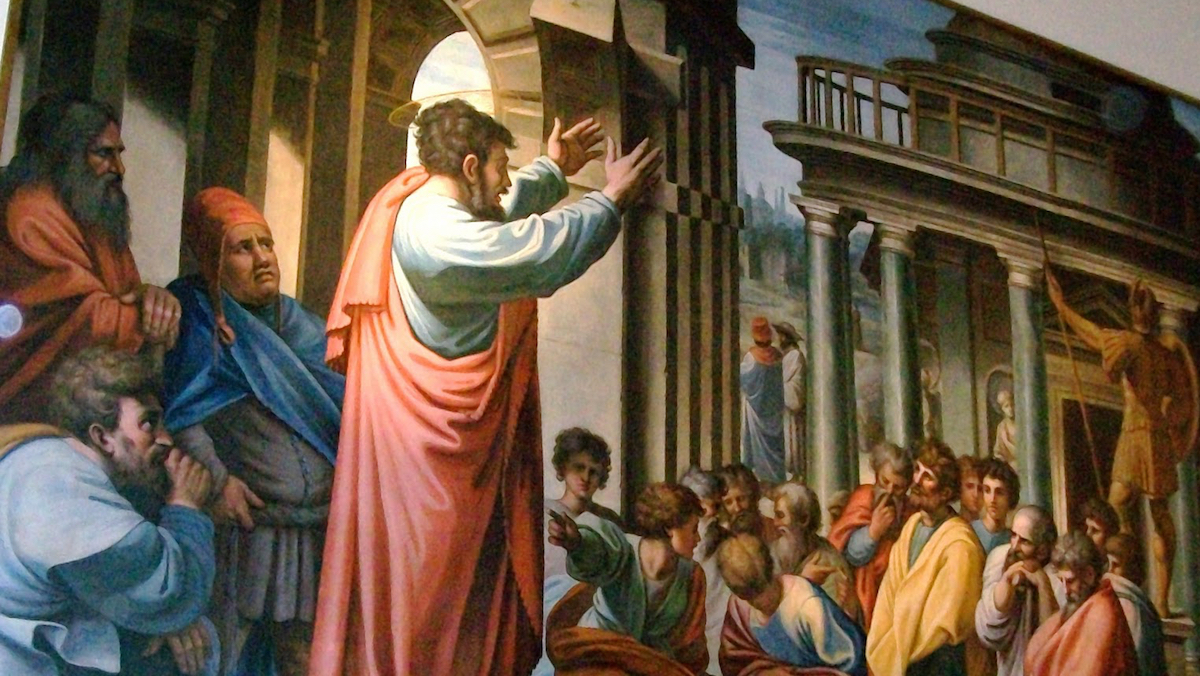Comedian Jay Leno is known for his sharp wit, but in his autobiography, called Leading With My Chin, he shows a warmer side–especially when he writes about his now-deceased parents. Jay fondly recalled an incident from high school. He had finally saved enough money to buy his first car–actually an old, beat-up pickup truck. It wasn’t much, but it was his, and he spent many hours working on his new prized possession. His parents saw how important the truck was to him, and as an expression of their support, they bought brand new upholstery for the seat. They also realized how disappointed Jay was when he accidentally broke the driver’s side window and couldn’t afford to get it fixed. One school day Jay was sitting in class when dark clouds appeared overhead; soon it began raining very hard. From his seat Jay could see his truck in the parking lot, and he could imagine the rain coming through the broken window, ruining the new upholstery. Then, to his complete surprise, Jay saw his parents’ car race into the parking lot; his parents got out with a big sheet of plastic and rushed over to cover the broken window. As he watched them, Jay realized they had left work, purchased the plastic, and come immediately to school to protect his truck from the rain–just because they knew it was important to him. Jay Leno writes that as this realization came to him, he sat there in his high school classroom and cried (Bausch, A World of Stories for Preachers and Teachers, p. 421).
This is a beautiful story of family love–and this is the way God wants us to understand His love for us. God loved the world so much that He sent His Son for our salvation, and later the Father and Son together sent the Holy Spirit that we might be made holy, and thus become capable of experiencing everlasting joy. The Three Persons of the Holy Trinity comprise a perfect family of love–and we are invited to enter into this mystery.
On Trinity Sunday, we celebrate one of the central teachings and mysteries of our Christian faith: there are Three equal Persons in One God. Understanding and explaining this truth is beyond our ability; what matters is that we believe and accept it–and the best way to do so is to see the reality of the Holy Trinity in terms of God’s love for us. God the Father is our Creator; Jesus the Son is our Redeemer; God the Holy Spirit is our Sanctifier. Each divine Person relates to us in a perfectly loving and self-giving way. In the 1st Reading the Lord revealed Himself to Moses as “a merciful and gracious God, slow to anger and rich in kindness and fidelity.” Moses had already seen the powerful deeds the Lord had performed in freeing the Israelites from slavery in Egypt, and he was well aware of the people’s sinfulness; instead of being terrified of the Lord, however, he trusted in God’s mercy. Jesus speaks of this mercy in the Gospel, telling Nicodemus that He, as the Son of God, was sent into the world not to condemn it, but to save it; because of God’s great love, all who believe shall have eternal life. In the 2nd Reading, St. Paul greets the Corinthians by saying, “The grace of the Lord Jesus Christ, and the love of God, and the fellowship of the Holy Spirit be with all of you!” As Christians, we believe that God seeks to share His life with us by offering us grace, love, and fellowship–and our response determines our eternal destiny.
The idea of love and the number three go together–not only in terms of the Holy Trinity, but also in regard to how God wants us to live. We should have a threefold experience of love in our lives: love of God, love of our neighbor, and love of ourselves. Loving God simply means placing Him first in our lives, doing our best to obey His commandments, and trying to come closer to Him each day. Contrary to what many people believe, love is not primarily a feeling, but an act of the will. This means that we can choose to love God, even if we don’t automatically have warm and personal feelings toward Him; once we make this decision, the proper emotions and sentiments will eventually come. We’re also called to love our neighbor, which means anyone and everyone we encounter. We live this out by helping those in need, treating others as we wish to be treated, and recognizing and accepting each person we meet as a fellow member or potential member of the family of God. This sort of love is also a choice, not merely a sentimental feeling; when we try to love others in God’s Name, even if we feel little more than indifference toward them, God is nonetheless very pleased. Lastly, we’re called to love ourselves–not in a conceited, narcissistic way, but in a manner which recognizes the dignity we possess from being made in God’s image and likeness. This sort of holy self-love means holding ourselves to high moral and religious standards, forgiving ourselves when we fall short, and using God’s grace to grow in virtue and to develop our talents and abilities.
Jay Leno witnessed a beautiful example of his parents’ love for him; their act of simple kindness was something he always remembered. God has shown us a sign of incredible love, and it’s something that should change us for all eternity. We need not try to explain the Holy Trinity or delve deeply into this theological mystery; what matters is knowing that the Father, the Son, and the Holy Spirit are a perfect family of love, and seeking to share in their life. With one Voice, the Three Persons call to us; with united and loving hearts, may we respond. [Trinity Sunday- A]








